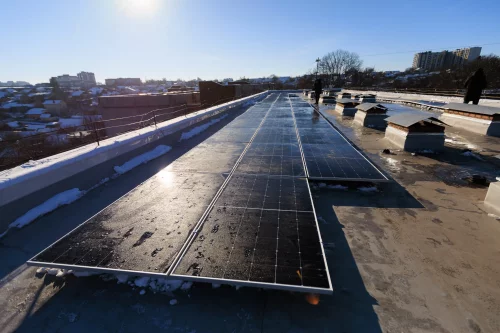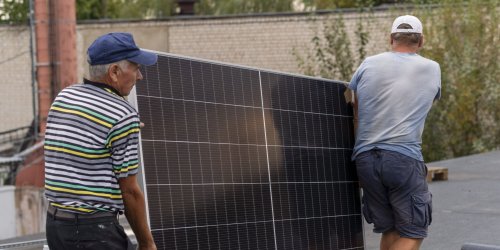Reuters market analyst John Kemp said that in Europe the energy crisis, the acute phase of which lasted from mid-2021 to the end of 2022, ended and energy markets adapted.
Europe's remaining problem is the replacement of relatively cheap Russian gas with relatively expensive liquefied natural gas (LNG), which threatens industrial competitiveness, reports Reuters.
Kemp emphasized that this problem for Europe is "chronic" and not a crisis.
He said that the energy crisis was caused by a record price increase oil, gas, coal and electricity. This has forced households and businesses to quickly reduce their use.
In addition, sanctions against the aggressor country introduced after Russia's full-scale invasion of Ukraine led to interruptions in the supply of energy resources. They were already limited due to the recovery of industrial production after the coronavirus pandemic.
"But after 18-24 months, the acute adjustment phase ends, energy reserves become comfortable, and prices return to long-term average values adjusted for inflation," explained the analyst. – There will undoubtedly be more upheavals in the future, but the disruption associated with the end of the pandemic and Russia's invasion of Ukraine is behind us. Markets have adapted."
Kemp noted that the oil, gas and coal markets underwent a slightly different process of adjustment. However, all these processes were variations of faster production growth and slower consumption growth. In addition, market adjustments were influenced by:
- the high level of hydropower production in Brazil, which reduces the need for LNG imports;
- an unusually mild autumn in northwestern Europe in 2023.
“The common factor is the huge scale of price growth in 2021 and 2022, which accelerated and postponed the adaptation process for a relatively short period. As a result, after a brutally painful adjustment in 2021 and 2022, production, consumption and stocks became much more comfortable by the end of 2023 and into 2024, and the crisis phase is over,” he added.
Earlier, EcoPolitic wrote, that a study by the international insurance company Allianz Trade showed that a repetition of the energy crisis in the Eurozone in the winter of 2023-2024 is unlikely.
As EcoPolitic previously reported, a study by the International Energy Agency (IEA) showed that in the EU in 2023 demand for electricity will fall by 3% to the lowest level in twenty years.





